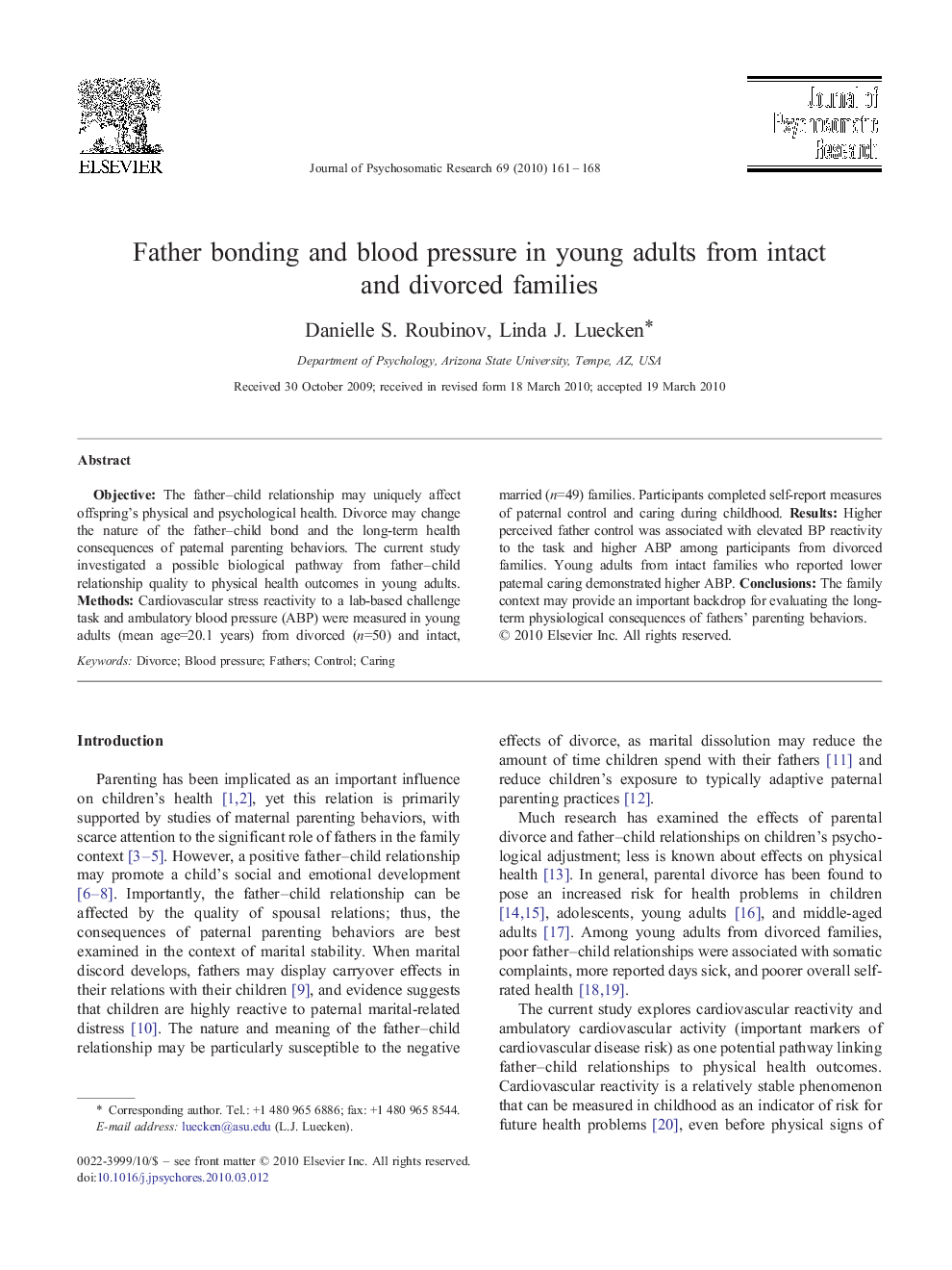| Article ID | Journal | Published Year | Pages | File Type |
|---|---|---|---|---|
| 950451 | Journal of Psychosomatic Research | 2010 | 8 Pages |
ObjectiveThe father–child relationship may uniquely affect offspring's physical and psychological health. Divorce may change the nature of the father–child bond and the long-term health consequences of paternal parenting behaviors. The current study investigated a possible biological pathway from father–child relationship quality to physical health outcomes in young adults.MethodsCardiovascular stress reactivity to a lab-based challenge task and ambulatory blood pressure (ABP) were measured in young adults (mean age=20.1 years) from divorced (n=50) and intact, married (n=49) families. Participants completed self-report measures of paternal control and caring during childhood.ResultsHigher perceived father control was associated with elevated BP reactivity to the task and higher ABP among participants from divorced families. Young adults from intact families who reported lower paternal caring demonstrated higher ABP.ConclusionsThe family context may provide an important backdrop for evaluating the long-term physiological consequences of fathers' parenting behaviors.
